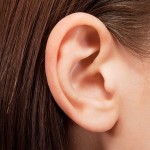 Got Ringing in Your Ears?
Got Ringing in Your Ears?
Tinnitus (TIN-ih-tus), the low level “hum” or static “buzz” you may be experiencing in one or both of your ears can be thoroughly annoying, even maddening at times. No matter where you are—it’s always the background noise you hear.
Perhaps you’ve already scheduled yourself an appointment with an ear, nose and throat specialist. That is a good first step. An Otolaryngologist can rule out, or rule in, conditions as Meniere’s disease (an inner ear disorder), age-related hearing loss (typically after age 60), ear trauma due to loud noise, ear wax build up, a circulatory system disorder, or possibly an acoustic neuroma (a non-cancerous tumor which can develop on a nerve in the brain). More often than not, however, that evaluation will end in a clean bill of ear health. So what should you do next?
Two decades ago I was the Co-Director of a TMJ Center in a local hospital. Each week I evaluated people who were suffering from jaw pain, headaches, and neck pain. Many of these patients had secondary complaints of ringing in their ear(s), which made perfect sense to me, but little to them—that is, until I explained the connection.
You see, the tension in your ear drum is controlled by a small muscle called the tensor tympani. When this muscle gets “negative input” from the surrounding muscles and nerves within the jaw, head and neck, it does what any respectable muscle would do—it goes into spasm. In cases of head/neck dysfunction, this increased muscle tension is the likely culprit behind the annoying ringtone you or your loved one may be experiencing.
My recommendation for those who have already seen their doctor to rule out any of the above medical conditions is that you seek treatment from a manual (hands on) physical therapist who will work diligently to “disconnect the caller” behind all that ringing—so that you’ll never have to hear that dreaded dial tone again!
*Note: Certain medications (antibiotics, cancer drugs, diuretics, etc.) can cause ringing in the ears. Check with your doctor or pharmacist to see if one of the prescriptions you are on may be causing or compounding this problem.